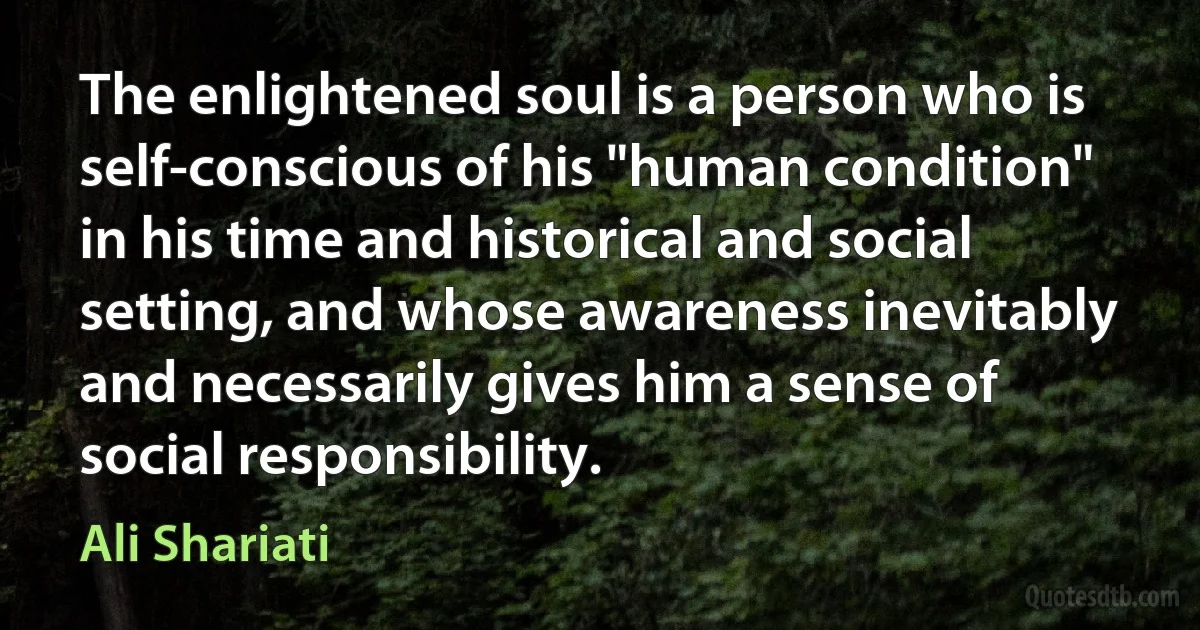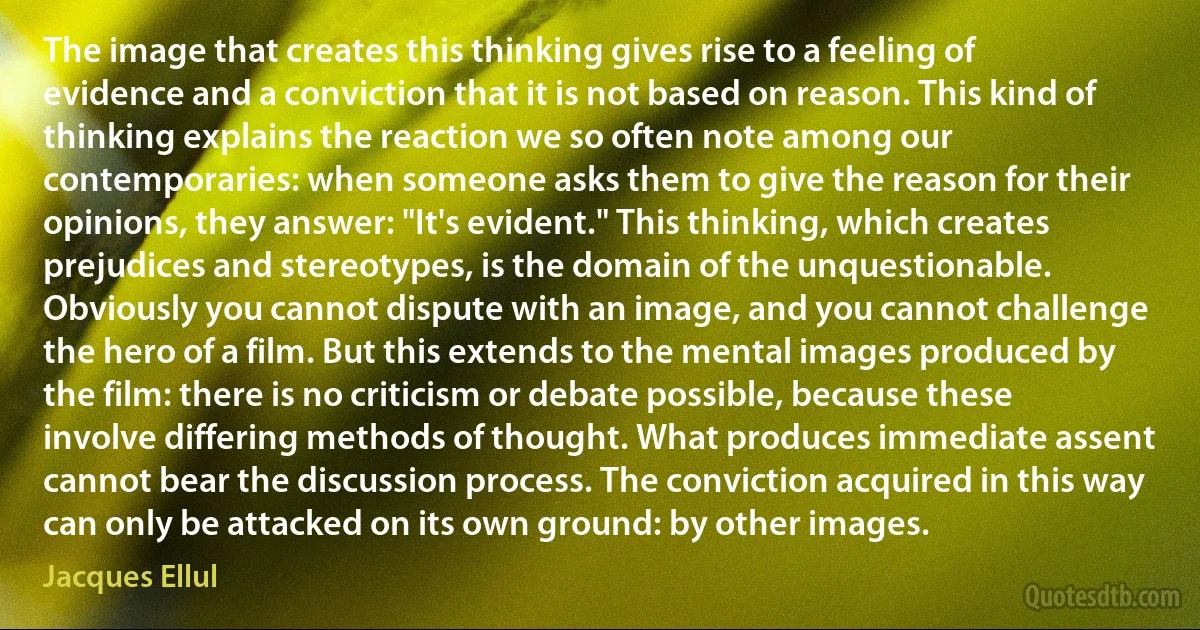Gives Quotes - page 51
It can hardly be a matter for surprise that our race has not succeeded in solving any large part of its most difficult problems in the first millionth part of its existence. Perhaps life would be a duller affair if it had. For to many it is not knowledge but the quest for knowledge that gives the greater interest to thought - to travel hopefully is better than to arrive.

James Jeans
Similar to the prophets, the enlightened souls also neither belongs to the community or scientists nor to the camp of unaware and stagnant masses. They are aware and responsible individuals whose most important objective and responsibility is to bestow the great God-given gift of "self- awareness" (khod-agahi) to the general public. Only self-awareness transforms static and corrupt masses into a dynamic and creative cantor, which fosters great genius and gives rise to great leaps, which in turn become the springboard for the emergence of civilization, culture and great heroes.

Ali Shariati
For, for aught we know, or for aught that the new science can say to the contrary, the gods which play the part of fate to the atoms of our brains may be our own minds. Through these atoms our minds may perchance affect the motions of our bodies and so the state of the world around us. To-day science can no longer shut the door on this possibility; she has no longer any unanswerable arguments to bring against our innate conviction of free-will. On the other hand, she gives no hint as to what absence of determinism or causation may mean. If we, and nature in general, do not respond in a unique way to external stimuli, what determines the course of events? If anything at all, we are thrown back on determinism and causation; if nothing at all, how can anything ever occur? As I see it, we are unlikely to reach any definite conclusions on these questions until we have a better understanding of the true nature of time.

James Jeans
The state, [Kierkegaard] argues, bears a direct relation to numbers. When a state decays, numbers decline and the state disappears. The whole concept is void. The relation of Christianity to numbers is different. A single Christian gives it reality. Christianity bears indeed an inverse relation to numbers. When all become Christians, the concept of Christianity is void. The concept is indeed a polemical one. One can be a Christian only in opposition. When opposition is suppressed, there is no more sense in saying "Christian.” Christendom has astutely abolished Christianity by making us all Christians. ... In Christendom there is not the slightest idea of what Christianity is. People cannot see or understand that Christianity has been abolished by its propagation. Again, history probably does not offer any other example of a religion being abolished by reason of its success.

Jacques Ellul
Totally inspires me and I am really happy that there are so many people who are working for children's right and I'm not alone. And he totally deserved this award. So I am feeling honored that I'm sharing this award with him. He recieved this award and we both are the two Nobel award receivers, one is from Pakistan, one is from India, one believes in Hinduism, one strongly believes in Islam. And it gives a message to people – it gives a message to people of love between Pakistan and India and between – between different religions and we both support each other.

Malala Yousafzai
The child begins with crude sex alone. It innocently indulges itself in sensual pleasures. It loves kissing and to be kissed, stroking and to be stroked, fondly contemplating its excretions. The civilized society into which it is born magnifies the importance of these insignificant local sensations, gives them intellectual depth. It creates a handsome receptacle, love, to contain the humours of this unnaturally enlarged instinct.

Laura Riding
The absolute rights of man, considered as a free agent, endowed with discernment to know good from evil, and with power of choosing those measures which appear to him to be most desirable, are usually summed up in one general appellation, and denominated the natural liberty of mankind. This natural liberty consists properly in a power of acting as one thinks fit, without any restraint or control, unless by the law of nature: being a right inherent in us by birth, and one of the gifts of God to man at his creation, when he endowed him with the faculty of freewill. But every man, when he enters into society, gives up a part of his natural liberty, as the price of so valuable a purchase; and, in consideration of receiving the advantages of mutual commerce, obliges himself to conform to those laws, which the community has thought proper to establish.

William Blackstone



